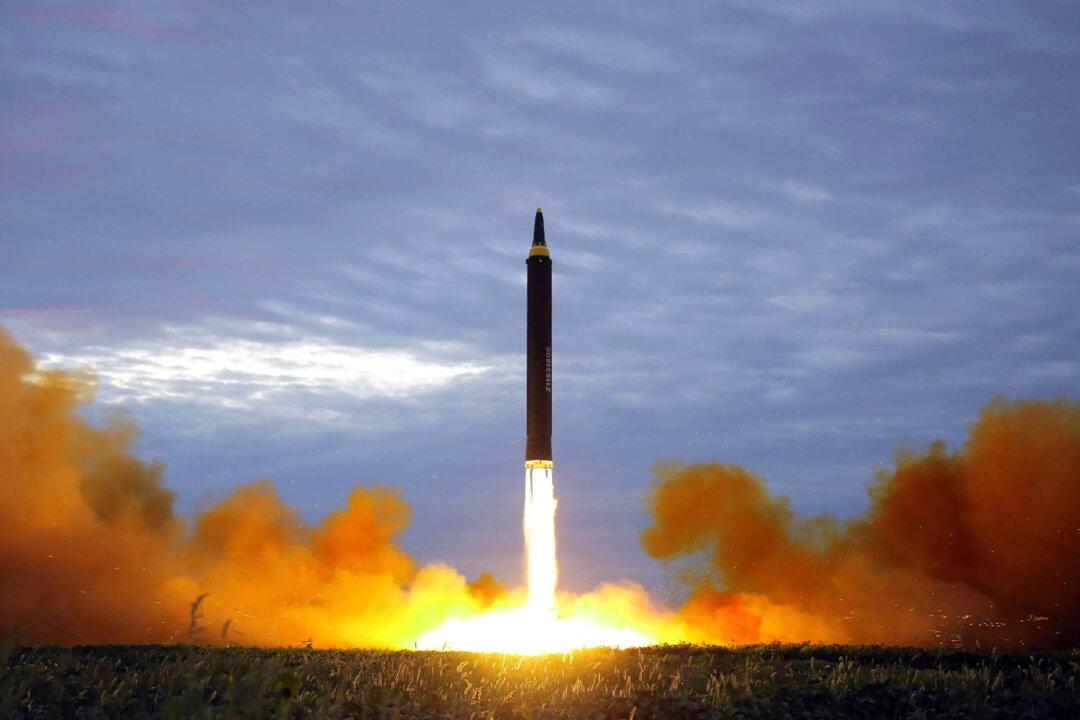North Korea has confirmed that it test-fired a Hwasong-12 intermediate-range ballistic missile on Jan. 30, its state-run media reported, as Washington is urging Pyongyang to engage in direct talks with no preconditions.
Pyongyang conducted its seventh missile test this month, the largest number in a single month since 2019. South Korea and Japan claimed that the projectile traveled 1,242 miles upward and landed in the ocean about 500 miles away.





